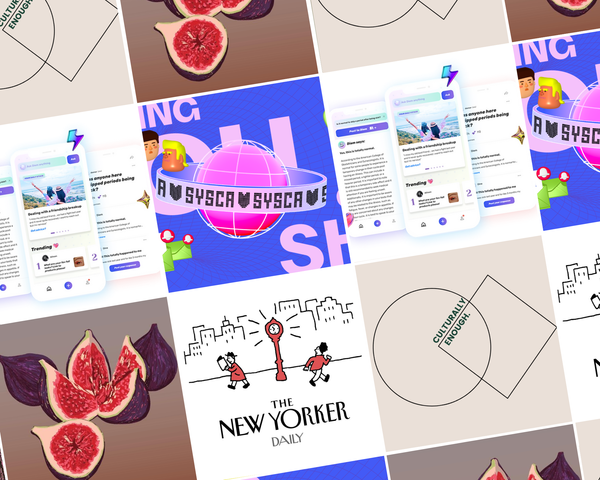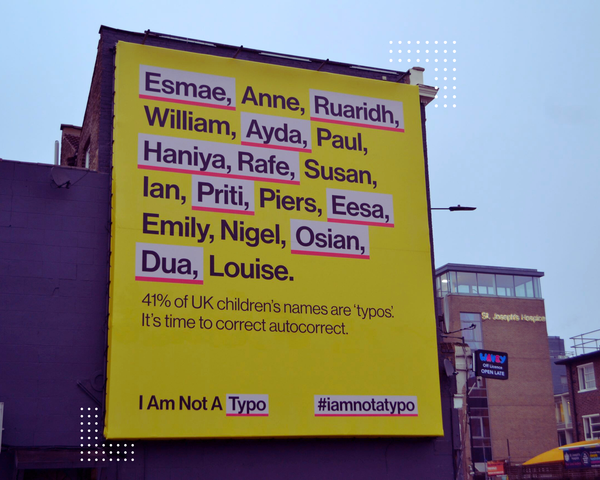Aja Barber on Colonialism, Climate Change and Consumerism - and How We Can Break Away from Fast Fashion
We talked to the author of “Consumed. The Need For Collective Change: On Colonialism, Climate Change & Consumerism”.

Access the Audio Read version of this article directly on Spotify for Podcasters.
"Once you step out of the hamster wheel of constant consumption, all of a sudden, it actually looks like a circus."
This interview was recorded on 23rd September 2021. Listen to the full interview on Spotify for Podcasters.
In “Consumed. The Need For Collective Change: On Colonialism, Climate Change & Consumerism”, published by Octopus Books and Brazen, Aja Barber tells the story of how she found her way out of the never-ending cycle of overconsumption.
We spoke on publication day, a day celebrating a labour of love and the start of what can be hoped as a general awakening about how much agency we have when it comes to consumerism. Change literally starts with us, but it starts with facing uncomfortable truths. Barber, a writer and fashion consultant who counts as one of the most influential voices against fast fashion, has seen her following grow considerably during the pandemic, perhaps a sign of a collective realisation that we are, in fact, duped by the system.
There is a lot to unpack when it comes to how much of a problem a society built around consumerism represents, from oppressive structures towards marginalised communities to the climate crisis, but Barber just wants these topics to be accessible for as many people as possible. “I’m hoping to draw people in and for them to realise this isn’t the end of the journey of learning about these topics,” she says. A lot of the examples in the book draw from Barber’s experience working in the fashion industry. “A lot of what you will read in the book is stories that have happened throughout my life, and so many of my experiences have cumulatively led up to this book: moving to New York in my twenties, and being in the magazine world and realising that it really upholds systems of oppressions in so many ways, based on who can participate and who is celebrated; and having all these different experiences really fed into the profile I have today and what I’m doing on my platform.”
Consumed is, surprisingly, the first book by Barber, despite being a leading figure in spreading awareness around sustainable fashion for over a decade. “The world still has a lot of structural red tape around who’s allowed to write about these topics and who isn’t.” However, she says she has seen a slow shift in the number of Black authors getting published since the mid-2000s. “Wouldn't it have been great if the world just celebrated us all along? Why did it take so long?” she asks, adding she decided to take the opportunity whenever it would come.
Both the literary world and the world of sustainable fashion activism are indeed still predominantly white. “That is what the book is about. Because we talk about these topics saying ‘this is the new sustainability world’, but we are perpetuating the same problems and we end up fixing nothing - that is something the fashion industry always does,” she says.
Indeed she recalls blogging, in the early years, was celebrated as the way to democratise fashion. Except it didn’t. If anything, it ended up celebrating the wealthiest of them all. “Until we start to make the fashion world more equitable, we’re never going to change the way we need to change - we’re just doing the same thing and celebrating the same people.”
Despite constant reports on fashion’s very real sustainability problem and its oppression of millions throughout the world, fast fashion is still going strong - climate crisis or not: “Part of the reason why the fashion industry has sort of gotten away with some epic bullshit for years is because the world looks at fashion as frivolous and silly,” says Barber. “If fashion was something that was celebrated by a majority of cis het white male population, people would take it and its impact more seriously, but because it’s largely associated with women and queer people, people tend to treat fashion as if it’s not so impactful and it’s not as serious - but in reality, it is responsible for a percentage of the carbon dioxide problem we’re facing.”
Barber wants us to realise that change is coming quickly, whether we want it or not. “There are so many reasons why we should care: we should not be perpetuating systems that harm people, that is the first thing. It’s really time for people to realise that even if you don’t care about people - and you should care about other people - one day, this is all going to come for you. A lot of us are not going to get out of this problem,” she says. “I think rich people think that they are somehow going to be insulated from the climate emergency, but I don’t actually think that’s true. We’re all going down on this ship.”
The book has a radical format, and for a good reason: one half is focused on learning, where Barber tells her own story breaking away from the shackles of a consumerist society, and the other focuses on unlearning. This part specifically helps the reader unpack what we’ve all been doing all these years. “We talk about habits, why we buy, consumerism, and how you might not think you’re drawn into it but you are,” she says. Barber invites the reader to unpick this, “so we can move forward on the same ground together.” The book also features illustrations to draw the general public in, because, as Barber explains, sustainability and colonialism can be a very dense topic. “I wanted to write a book that was so accessible that a teenager could read it and really get it,” she says. “We need to be appealing to everyone, and the smoke and mirrors around the fashion industry need to go away so that people can see where the problems are, and make their decisions for themselves and for the planet.”
While Consumed is for everyone, Barber specifically wants marginalised people, who have been mistreated by the fashion industry for years, to feel validated in the stories shared in the book. She also wants the general public to find the book valuable and helpful, one that makes us ask ourselves the right questions, from why we go shopping as a pastime to how many ads we see in a typical day out. Barber also recognises the trauma of the past two years, and made a conscious effort to avoid judging or guilt-tripping the reader, having been part of the system herself in the past just like everyone else. “I always had a feeling that fast fashion made me icky, but I just kept shopping because that’s what the world tells us to do. So I just hope to give people the tools to just question the system.”
And it starts with grappling with uncomfortable truths, such as wealth. “We do not talk about wealth in our society. We praise people who pull themselves up by the bootstraps, and that doesn’t actually happen that much in our society, but because that is the thing that people praise, there are people who go through fiery hoops to hide generational wealth from their peers and it’s really not helping anyone - it’s not helping this conversation. We’re in a society where every person wants to talk about how they care so much about defending poverty, and that if you critique this system you are just critiquing poor people, and I always argue that it’s not true,” she says, “because poverty is obviously systemic and exists in every country, but 50% of the world lives on $5.50 a day and they’re not the people buying fast fashion.”
Indeed, Barber wants us to be honest and real about who is upholding the system of fast consumerism and inequalities of wealth. “If we’re talking about poor and working poor people, particularly in America, which is the largest fast fashion consumer, poor and working poor people account for three to four percent of America’s wealth, but if you look at all the fast fashion companies, the people at the top, the top within the board, the people in the families who own these businesses are billionaires, so that three to four percent of wealth in America is not enough to make a billionaire - so how are these people getting so rich? Can we just acknowledge who buys fast fashion?” she asks. “The people who are buying at the speed which maintains the system and keeps it profitable are not poor people. But when it comes to defending a system that people really want to participate in, they’ll just jump through all sorts of fiery hoops and call you classist and say that you hate poor people... And actually, no, I don’t. I just want us to be a little more honest about this system and who is perpetuating it.”
These things are all out there and easy to find - from documentaries to conferences, a quick search on the true cost of fast fashion can be highly educational. But the internet also lets a lot of myths get carried around, and social media makes it tough to debunk them. One of them being that criticising fast fashion is classist, or that people who thrift are gentrifying thrift stores (and basically a bad person). “The fashion industry pumps out a hundred billion items of clothing every year. There are only 7.9 billion humans on this planet. So a person starting a Depop business isn’t actually displacing anyone. The reason that people can’t find good stuff is because of fast fashion,” she says.
Barber was tired of talking about those myths, so she put them in a book. “People also don’t understand the value of clothing, because fast fashion has really changed our Overton window into how much things should cost - clothing is the one thing that hasn’t gone up with inflation,” she says. Indeed as Barber explains, education, the cost of cars and housing have all gone up with inflation, while clothing went down. “We have a really skewed idea of what a fair price is for a garment because fast fashion artificially suppresses the price, and because of this idea that affordability might be affordable for you - but it wasn’t affordable for the farmer that got ripped off. It wasn’t affordable for the garment worker who didn’t get paid,” she adds. “It is only affordable to you, and there is a back story behind why that price is so low. For every low price, there is a human cost there, and people aren’t quite ready to grapple with that, but I hope to really get people on the same page so we start to understand that we’re not going to get out of this in a sea of $10 dresses.”
Barber once wrote that the top two largest fast fashion chains in the world and the companies guilty of the most plastic pollution are all white owned - something that serves as a reminder that people tend to compartmentalise, without giving much thought to intersectionality, as if sustainability, and social and racial activism were not intimately linked. “I hear people saying ‘but the world buys fast fashion’, when actually, no ‘the world’ doesn’t,” she says. “The Global North buys fast fashion - the UK and the US. The UK is the biggest purchaser of fast fashion in all of Europe, while the US is the second largest in the world. China is the first, but that is just because their population is huge. Per head, the US buys more fast fashion than anyone else, so everybody likes to spread the problem around saying that it’s everyone but it’s just once again one of those myths that we tell ourselves to make ourselves feel better about the system.”
Barber herself buys less than she used to, contemplating the same second-hand item for months and really asking herself if she needs something before making the decision to buy it. She recalls wanting clothes from specific brands as a child to ‘fit in’ and make friends. Fashion as an art piqued her interest as she grew up, and so did the realisation that the media sends us the message that the world will view us differently depending on what we wear - an idea perpetuated in blockbusters and magazines. Barber once wrote that “the less you buy, the more power you have”, something she relates to on a personal level, having had her own lightbulb moment about consumerism years ago. “When I stopped buying fast fashion, at first I really missed it, wondering who I would be if I wasn’t this person participating in the system,” she says. “Now, when I go back into those stores, I can’t look at it the same anymore. It’s headache-inducing. Everything smells like plastic, and the formaldehyde they spray the clothing with is very noticeable to me. I feel like I would have to force myself to buy something and I probably wouldn’t be that happy about it.”
When we talk about the eternal cycle of fashion trends, and what gen Z would call ‘cheugy’, Barber shares that “anything goes“ at this point. “Once you step out of the hamster wheel of constant consumption, all of a sudden, it actually looks like a circus.” She draws a perfect analogy by remembering how, as an American in London, she had to get used to the absence of sugar in food - now when she eats deserts in America, she is shocked by their sweetness. “Fast fashion is the same way. When you’re constantly in the cycle of buying it, you think this is normal and great; then you stop and you kind of miss it,” she explains. “I always tell people, you’re not going to quit cold turkey, it’s actually really hard. But eventually, you do get to a point where, when you do go back in, you wonder ‘was the clothing always this bad?’”
Mental health is also an integral part of why we shop, and many build their entire personality, livelihood and reputation on the way they dress. “I often ask people, do you like fashion, or do you like shopping? There’s a definite difference between the two.” When we talk about how the pandemic influenced the way we shop, Barber shares she believes we’ve become more polarised, calling it a fifty fifty split. “People went in two different directions. The person who, right before the pandemic, was starting to think that things were a little weird, they took a moment to really dive into what I talk about, and change.” But not everyone had the same reaction to being trapped in their homes for a year. “People who were not interested in looking at the system or critiquing the system at all just went deeper into consumerism. And we see this in the popularity of Shein.”
Barber hopes the book will strike conversations between people and their loved ones, as hard as they are - a judgement-free, open discussion with friends and family about our consumer habits, so we can all grow from the topic. She also wants the big high street fashion stores to stop having the power that they have. “I want people to stop automatically giving them their money. That is what I want the most, because they will never change anything unless those of us who are perpetuating the system start to step away from it,” she says. “And the truth is, they’re the culprits”. She also encourages people to buy from small brands, if they can, because the chances are that the products will be more ethical. “Not everyone can, but I would argue that the people that are putting in the type of money that really sustains the system can definitely make those changes.”
When we touch on climate doom, Barber shares she feels hopeful for the future: “People message me and tell me that my platform has changed the way they participate in the system, and that gives me a ton of hope,” she says. But she does have a word of caution for slow adopters of change and fast fashion brands. “Eventually, I don’t think that we’re going to be having these conversations because if we don’t change our ways, we’re going to have to have way bigger problems. Nobody is going to be able to create fifty seasons of clothing a year in a world that is under planetary distress and facing droughts constantly - that is the reality. So whether or not the fashion industry wants to change its ways, the planet is changing, and if they do not change with it, they will be obsolete. If we keep going down this path, a loaf of bread will be worth more than a diamond ring. So I’m looking at these brands thinking, keep playing but at the end of the day you won’t have a consumer to sell to if you keep doing this.”
Eventually, Barber believes brands must lose some of their power, and that change must happen from within the fashion business. “I would like to see a fashion industry that is more diverse in every way, and where small brands and brands that are doing everything right are competing on the main stage,” she says. “I just hope that people realise that out of all the problems we are facing, when it comes to the climate emergency, this is one that I think we’ve got. There are going to be a lot of other problems that are going to require lawmakers to do their jobs and that’s going to be really hard, but this one with the fashion industry, we can do this. And when you look at the scale of the problems that we are facing, it’s very easy to get scared, because that is a potentially very scary future, so I always tell people to compartmentalise this and think about the areas where you can actually make a change. And as far as how we buy, and what we buy, a lot of us have a lot more power than we think we do.”
“Consumed. The Need For Collective Change: On Colonialism, Climate Change & Consumerism” by Aja Barber is published by Octopus Books and Brazen (hardback, £15), out now and available in major book retailers.





